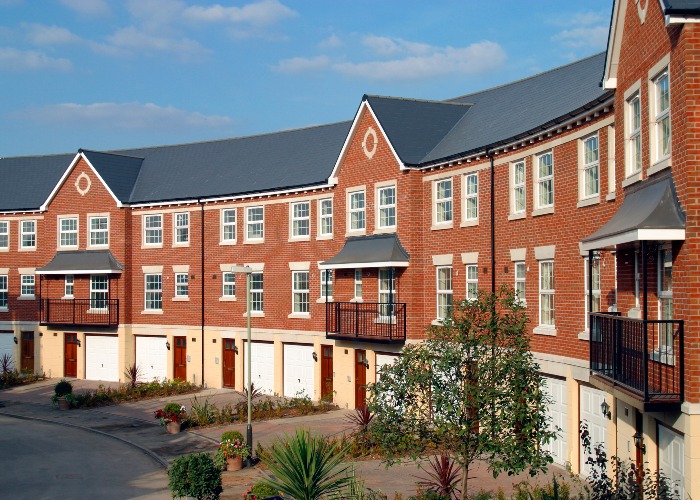Council Tax, Stamp Duty, Inheritance Tax and other costs hitting UK homeowners

As new research reveals that UK homeowners are among the most taxed in the world, we explore some of the hardest hits.
Many Brits regard home ownership as the Holy Grail of financial success.
And it's certainly safe to say you can make a fortune if you buy in the right postcode and sell at the right time.
In fact, research reported in the Telegraph reveals that house prices have almost tripled since 2000.
The world’s most-taxed nation?
Alarmingly, the same data also shows that UK homeowners could now be among the most taxed in the world.
During the 2023/24 tax year, property-related taxes added 3.7% to the public purse, higher than any other developed country.
This figure is also far above the EU average of 1.4% and the G7’s 2.7%.
So, how do we rate against other nations?
|
Country |
Property taxes as a portion of GDP |
|
UK |
3.7% |
|
France |
3.5% |
|
Canada |
3.4% |
|
US |
2.8% |
|
Japan |
2.6% |
|
Italy |
2.2% |
|
Germany |
0.9% |
Source: The Telegraph
In this article, we examine the most eye-watering tax raids for Brits, how these compare to other countries, and how you can fight stealth tax rises.
The best places to live in the UK in 2025
Council Tax: up to £2,280
Council Tax has historically been one of the most painful charges for UK homeowners.
Under current rules, Local Authorities can hike rates by up to 4.99% every year, with larger increases requiring a referendum.
The Telegraph found that the UK’s average increase was below 1% in 2010/11 and 2015/16.
As of 2024/25, however, the average bill rose by 4.3%.
If predictions are correct, the typical Band D bill will hit £2,280 in the 2025/26 tax year.
|
PROMOTION
|
||
|
Second homes: 77% hike
Councils now have the power to impose a 100% Council Tax premium on second homes, effectively doubling costs.
This puts the average annual bill at around £3,672 – a 77% increase from previous years.
Bills of £5,000 or even higher are now standard for more expensive properties in some Local Authorities.
|
Year |
Amount |
|
2023/2024 |
£1,883 |
|
2024/2025 |
£2,076 |
|
2025/2026 |
£3.672 |
Source: The Telegraph
How does the UK compare?
France bases its 'taxe d’habitation' on rental value, equating to approximately €10 to €20 per square metre
A typical resident pays between €1,000 and €2,000 (£836 to £1,672), the Telegraph has found.
That said, France’s Government abolished the charge for primary residences in 2023, and it now applies mainly to furnished second homes.
Opinion: incorrect bands, bankrupt Local Authorities & more reasons Council Tax is broken
Stamp Duty: more pain on the horizon
As The Telegraph reports, Stamp Duty – the amount you pay when you purchase a property over a certain price – is one of the UK’s ‘most-hated’ taxes.
And the situation has recently become even worse.
During her October Budget, Chancellor Rachel Reeves decided not to extend temporary relief for buyers.
This means the amount at which you start paying the tax has dropped from £250,000 to £125,000.
'Awful April' rages on
As of last month, many people will pay 2% on the portion of a property's value from £150,001 to £250,000.
They'll then need to fork out 5% on anything above £250,000.
Bills can reach 12.5% on properties worth more than £1.5 million, although few of us need to worry about this!
First-time buyers pay the tax on properties over £300,000.
Stamp Duty raised a whopping £11.6 billion for the Government in the 2023/24 tax year.
You can use this calculator to determine how much you’ll pay.
6 ways to avoid moving day nightmares
How does the UK compare?
According to the Telegraph, Belgium is the only country with a higher rate, at 12.5%.
Portugal charges a flat 0.8%, and buyers in Spain typically pay between 1% and 1.25%.
The United States doesn’t impose Stamp Duty.
Inheritance Tax: a stealth rise
Brits pay Inheritance Tax (IHT) at 40% on estates worth more than £325,000.
However, there’s an additional allowance of up £175,000 if you leave your home to your children, which is known as the residence nil-rate band.
Spouses can also combine their allowances.
Despite soaring house prices, IHT thresholds have remained unchanged since 2009, dragging more of us into paying so-called 'death duties'.
As with many tax hikes, successive Governments haven’t technically raised taxes, but freezing thresholds has radically increased the tax take.
Capital Gains Tax: up to 24%
This tax doesn’t apply to your primary residence.
However, it can be pretty painful if you sell a second home or a buy-to-let property.
Basic Rate taxpayers (those earning under £50,270) pay 18%.
If you’re a Higher Rate or Additional Rate taxpayer, you’ll face bills of 24% on residential property.
The impact of spiralling costs
These taxes soon add up.
For example, the research looked at a second home worth £500,000.
According to data from investment firm Quilter, if the property is inherited and held for 10 years, the combined tax burden could hit £287,065 – approximately 57% of the original value.
Even an average-priced property of £268,000 could face taxes totalling £158,835 or almost 60% of its original worth.
How to fight back
Luckily, there are some steps you can take to reduce your tax burden.
Make early gifts
A Potentially Exempt Transfer is the easiest way to avoid Inheritance Tax.
This allows you to give money away without being liable to HMRC.
However, there is a morbid condition: you'll need to live for another seven years after making the gift.
Gifts include money, property, jewellery, antiques and shares listed on the London Stock Exchange.
Sell at the right time
Listing a property in a year when you have a lower income could help reduce your CGT bill.
That’s because this tax is based on your Income Tax band.
If you’re earning less, you may fall into a lower tax bracket.
The tactic is especially effective for those retiring, taking a career break or freelancers anticipating a dip in earnings.
Downsize wisely
Downsizing from a larger home could be a smart move, especially if you're looking to avoid higher tax bills in the future.
Likewise, you may benefit from lower living costs and less financial pressure during retirement.
Comments
Be the first to comment
Do you want to comment on this article? You need to be signed in for this feature
